4 professionals
Johanna, 30 years old. Papulopustular and comedonal lesions on the face.
Johanna, 30 years old. Papulopustular and comedonal lesions on the face.
Related topics
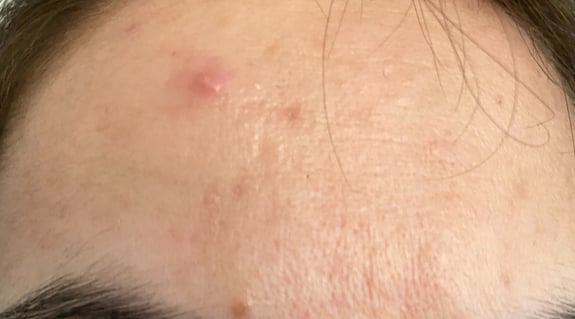
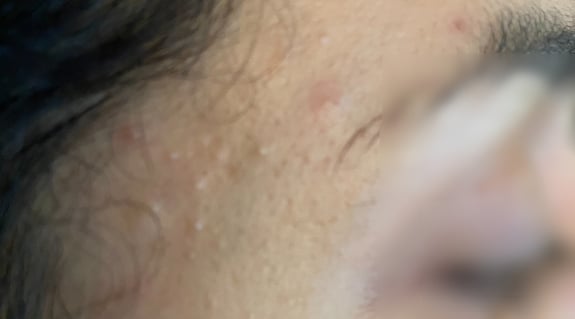
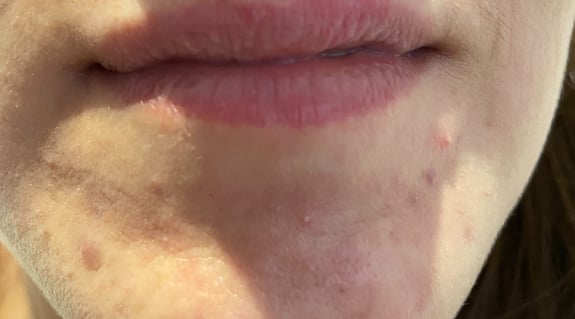
True answer!
Wrong answer!
True answer!
Wrong answer!
Identifying inflammatory papules and comedonal lesions.
Take the time, when taking the patient’s history, to look for any mistakes in hygiene or skincare (foundation, etc.) that might make acne worse.
The absence of comedonal lesions (comedones and microcysts) goes against the diagnosis of acne.
Lesions caused by excessive handling of the skin on the face, leading to erosions.
Folliculitis, including drug-induced folliculitis: the lesions are monomorphic, made up of papules and pustules, while comedones are absent. It follows a particular course, starting abruptly and subsiding when the causative drug is stopped.
The drugs most frequently implicated are androgens (taken by athletes and body-builders), progestins and combined contraceptives, corticosteroids, anti-seizure drugs, anti-tuberculosis drugs, vitamin B12, halogens, lithium salts, immunosuppressive drugs (azathioprine, ciclosporin), epidermal growth factor receptor inhibitors.
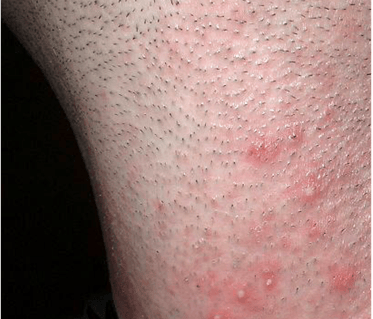
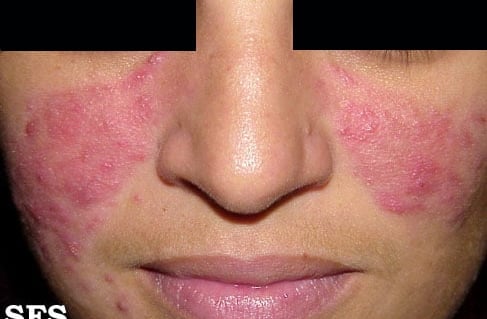
* Doxycycline is administered at a dose of 100 mg/day, taken with a meal and a large glass of water. The patient should be informed that this treatment must be stopped if she becomes pregnant. Sun exposure should be avoided (photosensitising product).
It is advisable to see the patient again after 3 months of well-followed treatment.
You can then assess the efficacy and patient’s tolerance of the product:
It is important to continue the hygiene and skincare routine even after stopping treatment:
It is preferable not to handle acne lesions to avoid scarring.
Stress is not the cause of acne, but it does seem to worsen it.
Stress can lead to the stimulation of hormones, such as cortisol or androgens, which can potentially encourage hyperseborrhoea.
Some people think that applying toothpaste to their acne can help cure it. This is false (one of the many misconceptions spread on social media).
The ingredients in toothpaste can irritate and dry out the skin, with no positive effect on acne. So, toothpaste should only be used… for your teeth!
The sun is a false friend for acne.
At first, it dries out the lesions by increasing the thickness of the skin (particularly the stratum corneum). As a result, the lesions seem to disappear. What’s more, they are less visible because of the tanning. But once the sun has gone, the lesions flare up again.
What’s more, many medications prescribed for acne contraindicate sun exposure. So, it’s best to protect yourself and, of course, not to use tanning oil…
An association has been suggested between the consumption of very sugary foods and acne. The potential explanation is that sugar induces excess insulin production, which increases sebum production and inflammation.
The best diet is therefore a varied and balanced one (“eat your 5 fruits and vegetables a day, Johanna”).
Current studies show no link between acne and consumption of charcuterie, but the main preservative in charcuterie (and other processed foods) is sugar, so it is advisable to limit.
The right make-up (free of comedogenic ingredients) does not aggravate acne. And it’s vital to restore a positive self-image, so if make-up can help…
Another point: patients are less likely to manipulate their facial lesions when they are covered. “So, Johanna, you can wear make-up”.
There are special make-up ranges with noncomedogenic (oil-free) tinted creams, available from personal-care product retailers, which do not aggravate acne. If that’s not enough, there are products offering stronger coverage, such as concealer treatment sticks or camouflage bases.

From the outset, remember to ask patients about aggravating factors so that they can be eliminated.

First manage acne using proper hygiene and dermocosmetic products before giving medical treatment or consulting a dermatologist
Critical point: contraception on isotretinoin.

Adapt contraception by changing the contraceptive regimen to a more anti-androgenic progestogen or a more oestrogenic state.
Provide advice - health education, etc.
Refer to the GP if necessary for local treatments (antibiotic therapy or anti-acne medication).

Be careful with prescribing 2nd generation contraceptive pills with cases of acne.
If lesions worsen, first recommend a change of contraceptive method, then recommend the use of dermocosmetic products.
Create easily your professional account
I create my accountGet access to exclusive dermatological services to increase your professionnal knowledge: +500 pathology visuals, clinical cases, expert videos
Benefit from valuable features: audio listening, materials to be shared with your patients
Stay informed about the upcoming events and webinars, latest scientific publications and product innovations